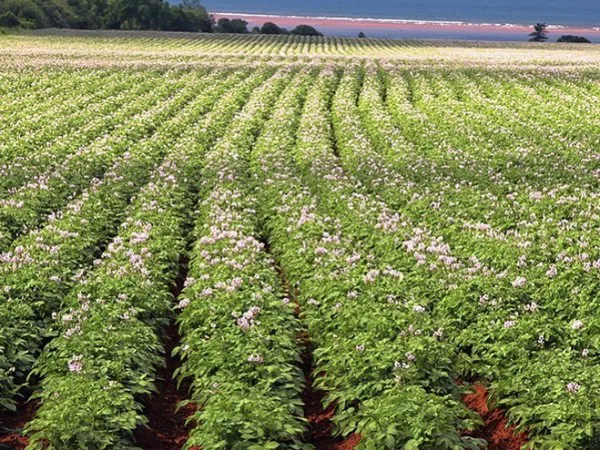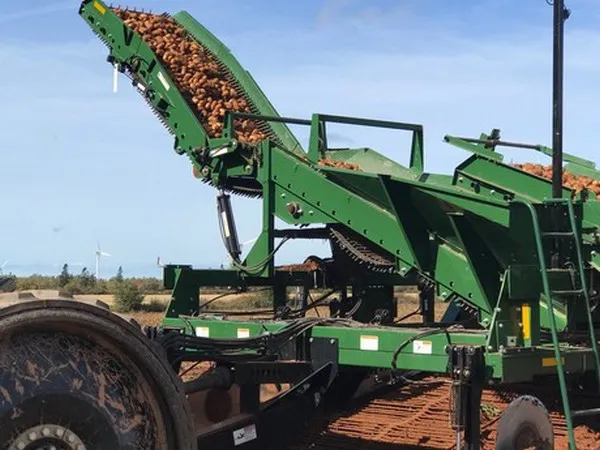Prince Edward Island potato growers continue to face an uncertain future as to what their next growing season looks like.
Already back at the end of March, growers of processing potatoes on the island reported a significant drop in demand for French Fry potatoes. This trend was largely triggered by the closures of restaurants across North America whose menus feature French Fries.

At the same time, retail sales of table potatoes were booming. “The industry saw quite a spike in sales, especially in the initial stages,” says Jennifer Harris of Mid Isle Farms in Albany, PEI. “People were buying potatoes due to the uncertainty. Nobody knew the risk involved in getting groceries, or how long it would be until they could get to a grocery store again. So, we saw an enormous increase in demand and put on extra shifts. We were working nights, days and weekends to fulfill the needs of our customers.”
Then a small lull in demand hit. “It seemed the pipeline had temporarily filled itself, until we were hit with another bit of a rush before finally levelling out. Overall, in talking to retailers, they approximate their sales were up by 30 percent,” says Harris.
Government support
In the meantime, on the processing side, PEI’s provincial government committed $4.7 million for shipping and storage costs of processing potatoes and help move the remaining 2019 crop.
To a smaller extent, Harris says that some foodservice potatoes also made their way over to retail. The initial spike in demand helped move a bit of that product over, including larger table potatoes that are generally saved for foodservice. “If you had a foodservice product that you could present in a creative way to retail, there was demand,” she says.

But where does that leave PEI potato growers now?
Managing the 2019 crop in the wake of the slump in demand for processing potatoes was the first COVID-19 related hurdle for the industry. The next one, says Harris, is seed management.
Both processing and table potato growers look to be cutting back for the fall 2020 crop by as much as 10 percent, if not more in some regions. “Our seed growers already have the seed for the 2020 crop in their storages and it was sold,” says Harris. “If processing and table growers need 10 percent less of that seed commitment, based on reduced contracts volumes and recommendations, the question now is: what to do with the excess seed?”
And now as plans for the fall 2020 crop are being modified, it is likely the industry will see a downward adjustment in acreage.
For more information:
Jennifer Harris
Mid Isle Farms
Tel: +1 (902) 855-2009
jennifer@midisle.com
www.midisle.com
